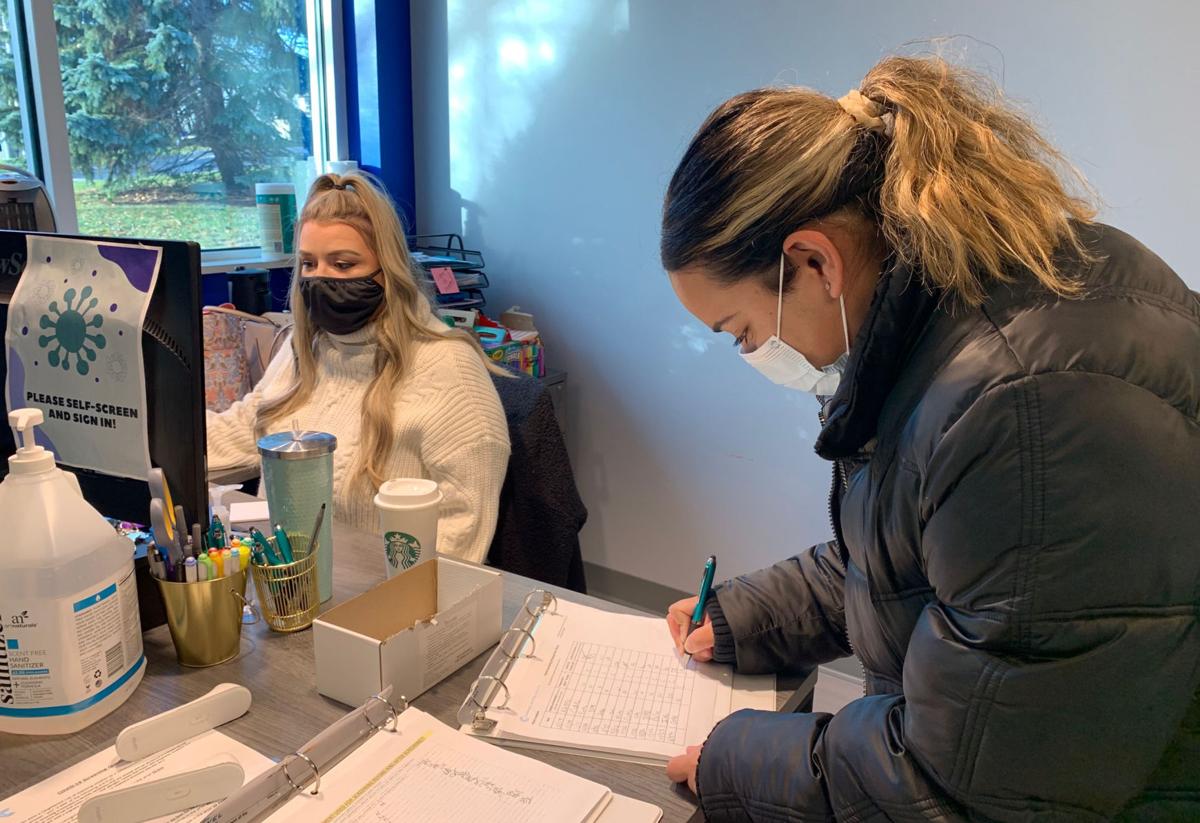By all indications, things at Caravel Autism Health are going swimmingly.
The new therapy center for children with autism recently celebrated its grand opening at 4006 Washington Road, Kenosha, WI. Its hallways are painted with ocean waves in soothing blue tones and classrooms bear the names of friendly sea life: starfish, minnows and guppies to name a few.
The goal is to present “the work” of autism therapy as play, noted Caravel’s clinical director Tasha Rieck, during a recent tour of the center.
“Some of the rooms are designated for peer play, others for individuals who benefit from one-on-one interactions with staff,” she said. “Group spaces are designed for peer play, social skills play and kindergarten readiness.”
The center also has a designated art room, lunch room and gym space.
Caravel Autism Health clinic opened its doors in August of this year, hosting a grand opening celebration this month. It is part of a national network of autism therapy centers.
The center is one of several agencies offering Applied Behavior Analysis therapy, known as ABA, in the Kenosha area, but one of just a few offering on-site services.
Offering programming to children ages 2 to 11, Caravel has capacity for 20. Currently 28 children are enrolled, 15 of whom receive at-home programming.
Caravel Autism Health staff consists of 22 behavior technicians, three senior therapists and an office coordinator.
The work of play
Most children come to the center following evaluation and diagnosis of autism by their family physicians who may recommend ABA therapy.
New enrollees are given a baseline assessment from which staff develop a therapy plan. Areas of focus include communication, adaptive, social and cognitive goals.
“Here we consistently try to put the child first,” she said. “My goal here is to create an environment where kids don’t even think they’re working.”
Options for therapy include all at-home, all on-site, or a hybrid of the two.
Some attend the center in the morning and have ABA therapists work with them at home later in the day.
For some children, having therapy in their homes isn’t the best option, Rieck said.
“Home may be their ‘safe space’ and not one they associate with ‘working’ or therapy,” she said.
Most children attend Caravel for 25 to 40 hours per week with hours tapering off as they get closer to “graduating” from the program.
Periodic assessments determine when a child is ready to graduate the program based on kindergarten readiness or other factors, Rieck explained.
Autism behaviors
According to the autism advocacy website autismspeaks.org, “autism refers to a broad range of conditions characterized by challenges with social skills, repetitive behaviors, speech and nonverbal communication.”
Inability to communicate can lead to frustration and challenging behaviors, noted Rieck. “This is the biggest piece,” Rieck said.
“Some kids come in and their major form of communication is tears. Once they can communicate their wants and needs their behaviors go down.”
Developed during the 1970s, ABA therapy works repetition to create desired behaviors through a system of repetition and rewards.
“A criticism of ABA has been that it tries to make people with autism act like they don’t have it, but really it’s about helping them to become independent and navigate the world in their own way,” Rieck said.
“As a science, ABA has grown a ton,” Rieck said. “We’re better now at individualizing things and putting the person first.”
Passion project
A board certified behavior analyst, Rieck, 36, discovered her passion for working with children on the autism spectrum when she in high school. After working as an in-home care provider for a child with autism, she chose to study ABA therapy at the University of Wisconsin-Eau Claire.
“I got really lucky — we don’t always get to stumble onto our life passion when we’re teenagers,” she said.
Rieck says working with students at the center offers the benefits of socialization. “I love it that kids do some of their hours (in-person). We make sure that all students have lunch together in the lunchroom and learn how to share the swing in the gym.”
The ultimate goal, she said, is to help those with autism “share their thoughts, and get neurotypical people to listen, because the way people with autism see the world is so valuable.”
www.kenoshanews.com



